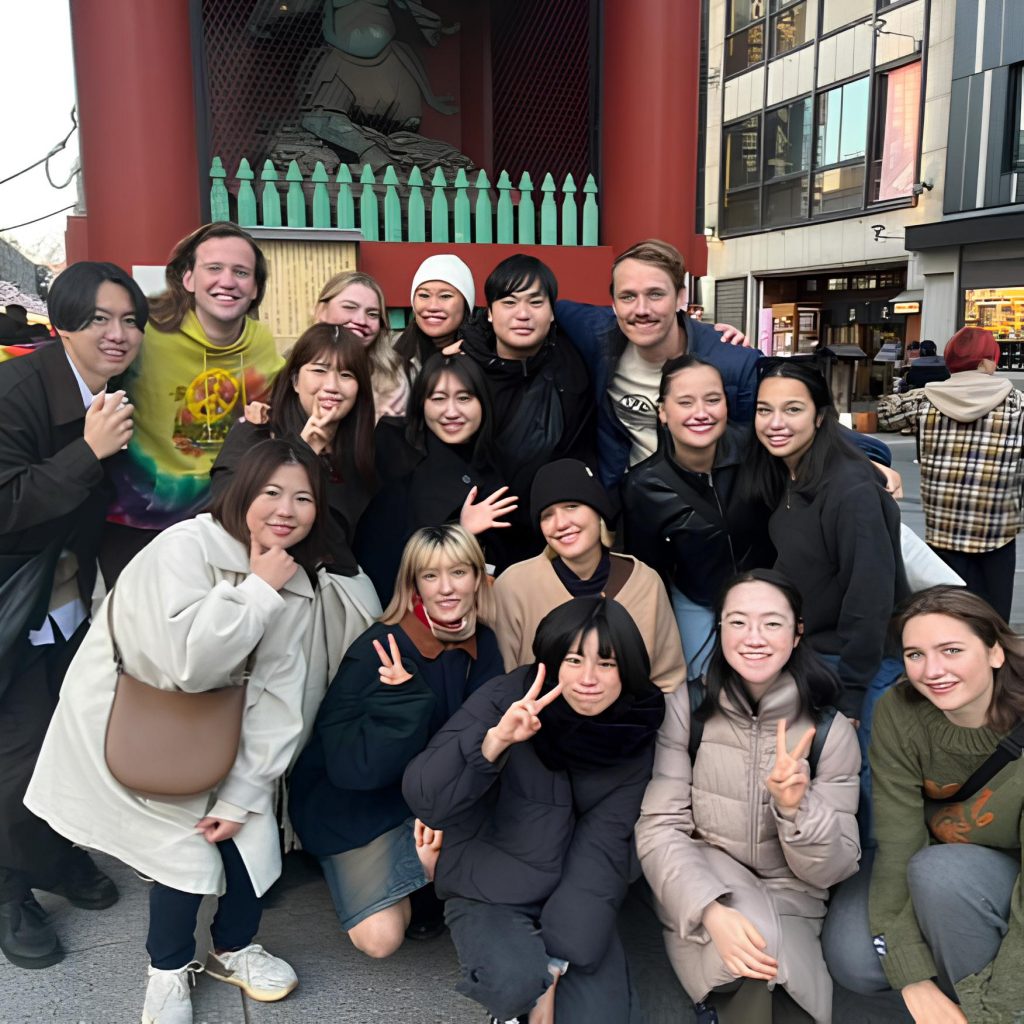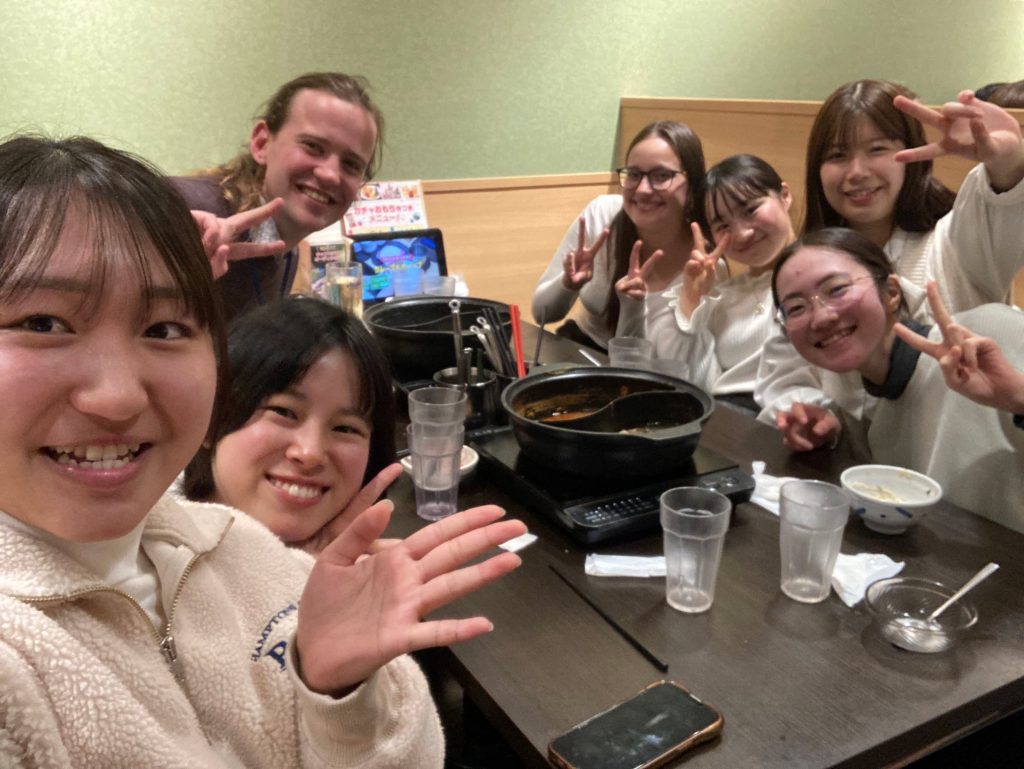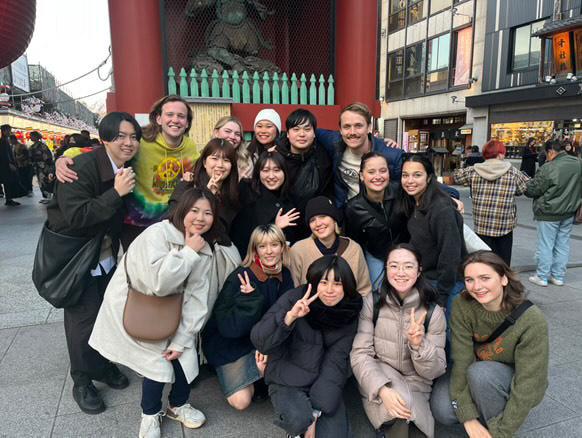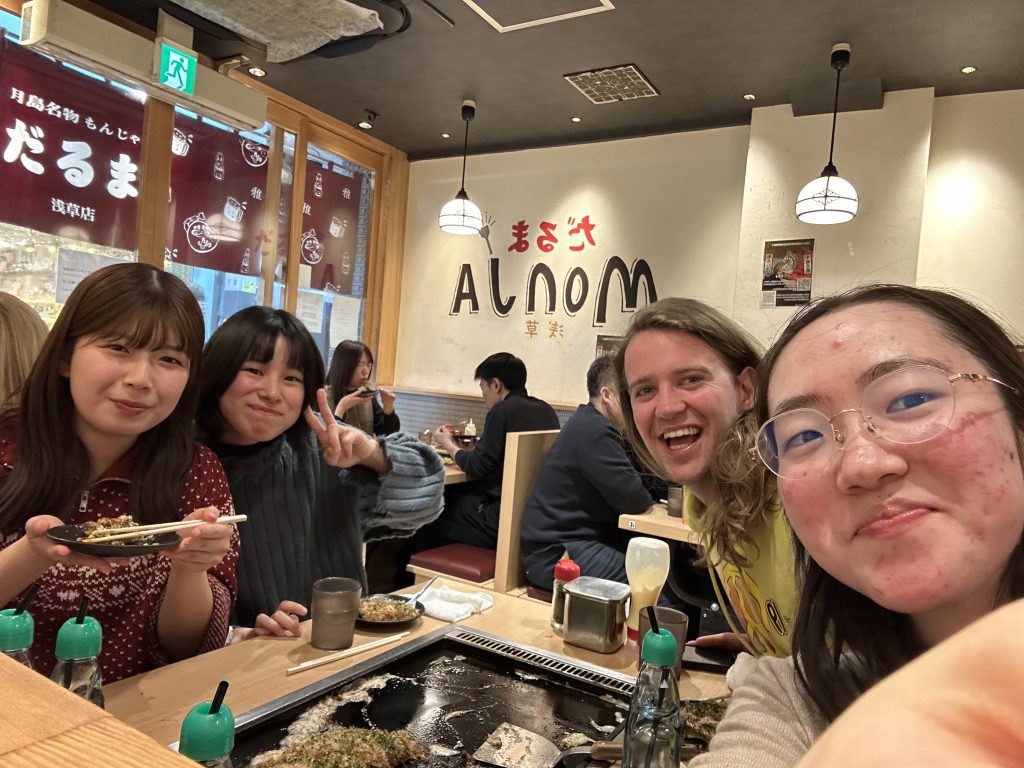The first step is the key to achieving major progress: The Australian Summit, where my studies fueled the discussion.

Name: Sayu Mizoguchi
Faculty/Department & Year (at the time of studying abroad): Faculty of Economics, Department of Economics, 2nd year
Study abroad period: Mid-February 2025 (approximately one week)
Study abroad destination (country/university): Held in Japan
The venue varies annually. In 2025, Australian students visited Japan as part of a joint program.
Study abroad format: Social Engagement Programs / Japan-Australia Student Summit Program
Every year, many Sophia University students study abroad in countries all over the world outside of Japan. How did they manage to find their way through the differences in languages, cultures, and lifestyles? Here are some voices of students who studied abroad.
What prompted you to consider joining the program?
I wanted to go abroad while I was still in college, so during the summer of my sophomore year, I participated in a hands-on program called the “Global Leadership Program” held in Indonesia. The time I spent with international students on that program was truly joyful, and I also wanted to improve my English skills. So, it made me want to apply for the ” Japan-Australia Student Summit Program” during spring break.
How did you choose this program?
First, I looked for opportunities where I could interact with students from other universities during my free time, at low cost. This program matched my criteria perfectly: I was able to discuss the annual theme with Australian students, and we also had plenty of opportunities to explore Tokyo and have dinner together during the period. The theme of the program I participated in was refugees, asylum, and immigration.
Did you have any concerns before joining the program?
I was very anxious about whether my English skills would be good enough, since I needed to discuss the topic with native speakers. I managed to get through, thanks to the help of other students, including those from Sophia University and Australian students.
How did you prepare for the programme?
As well as practicing my English, I thoroughly reviewed the assigned topics beforehand to make sure that I could express my opinions in English. This preparation proved especially valuable, as we each had to give a 10-minute presentation on the first day of the programme. Having the opportunity to have my presentation checked by the instructors in advance meant that I could carefully revise the content based on their feedback and rehearse time and time again. This process significantly improved my participation in the rest of the programme.
What words would you use to characterize the mood amongst the students?

Students from the Australian National University must study legal knowledge as a part of their core curriculum. Then they specialize in fields aligned with their individual interests. During our discussions on this topic, I noticed that their political perspectives were more pronounced than ours.
What was the most memorable incident?

I was most impressed by the process of debating with Australian students. One of the themes covered was immigration issues. Since Australia and Japan have different historical backgrounds, I was initially a bit nervous about how my honest opinions would be received. However, when we actually talked, I was pleasantly surprised to find that they were all very open-minded towards diverse opinions, and some even shared similar views to mine. I was delighted to gain insight about how Australian people actually felt—something I couldn’t have understood just by researching news and other media .
In which areas do you feel you have grown, or how has your mindset changed, before and after participating in the programme?
Firstly, I became more experienced in analyzing the current situation and reaching my own conclusion. When considering complex topics, I learned to research existing policies and public opinion, as well as deeply reflecting on my own views. I realized that, while sticking to a particular side might result in discarding the potential benefits of the opposing viewpoint, however it’s crucial to deliberately prioritize my views if I’m to engage effectively in discussions.

Secondly, the program enhanced my English and communication skills. Although the program itself only lasted one week, the period before and after was also filled with activities, such as preparing presentations for classes. Since most communication during the programme was in English, I feel that my English skills improved, at least a little. It also motivated me to study English more. Furthermore, I realized that it’s not just about English proficiency; it’s equally important to spark others’ interest in you as a person and in your words and opinions.
Thirdly, I gained an appreciation for what I have learnt as an Economics major. In my everyday university life, I rarely felt that my learning was truly embedded. However, when I compared my own presentation with those of participants from other departments during the programme, I noticed differences in our focuses within our respective themes. This made me realize that the knowledge we gain in each department influences how we approach issues, which confirmed how my learning solidified.
How do you think participating in these programs will affect your life going forward?
Overall, I feel that I have gained valuable insights and contacts that I never imagined I would when I first became involved.
Taking part in a program in Indonesia during my second-year summer break inspired me to challenge myself by taking part in another program during my sophomore year spring break. Then, during my third-year summer break, I volunteered at an event hosted by Sophia University, where I met and interacted with other participating students. During the autumn semester of my third year, I joined another program called SOFEX. Gradually, the challenges I faced initially led to new opportunities, and before I knew it, I found myself participating in many more programs than I could have imagined during my freshman year. All the friendships and connections with professors that I formed through these programs remain a constant source of inspiration. I intend to cherish these bonds while continuing to take on new challenges in areas that interest me.
Please share a message with those thinking about studying abroad.
Short-term programs are a great first step because they’re easier to commit to than long-term study abroad programs. Participating in several short-term programs is a great way to balance the demands of your daily university life while continuing to grow, even if a long-term programme isn’t feasible.
Sophia University offers a truly diverse range of program, so I encourage everyone to consider their goals and interests during the short period they spend at the university. I’m rooting for you!